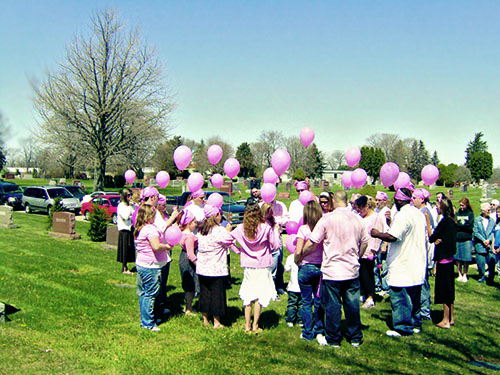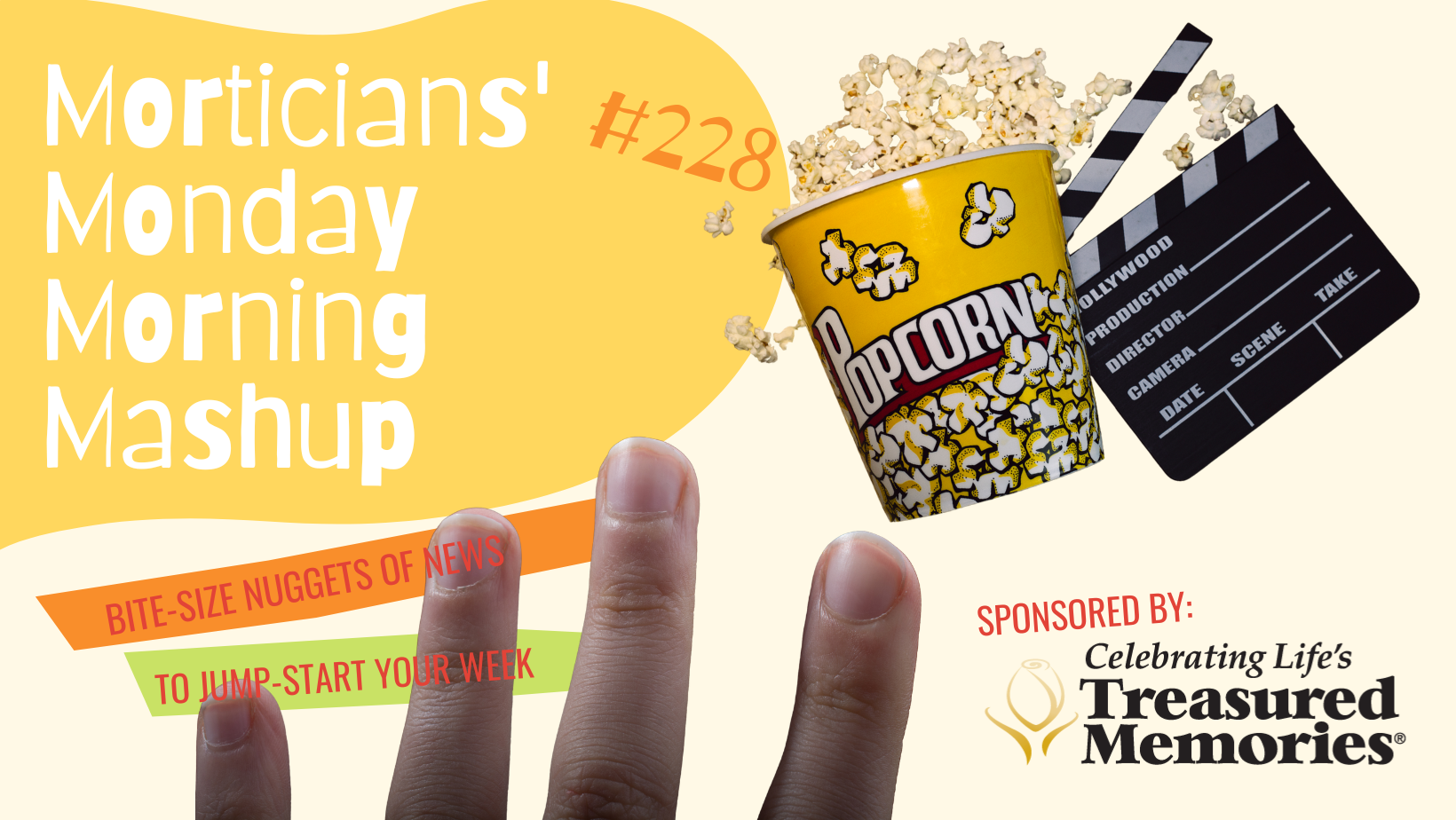Five Things a Funeral Director Can Teach Us About Our Jobs – And Lives
Originally published on Forbes.com
“We turn to Disney for inspiration on designing our funeral experiences. There’s a lot we can learn from them about making our experience more interactive” says 30 year old Kevin Schoedinger. Kevin’s the sixth generation of his family to run a funeral business. He’s learned the business from his family, but like all great innovators, he also looks for inspiration far from his own industry.
And yes, the funeral industry needs to innovate. Our death styles are changing with our lifestyles, and the industry has had to keep up. Technology has given us instant, customizable self-expression, from Instagram filters to mass-customized clothing. Once, funeral directors had a limited menu of options, and customers chose the one that suited their pocket and the customs of their culture. Now more and more of us are looking to be sent off in our own style, not one dictated by tradition.
Funeral directors have a lot to teach us. They guide customers through a traumatic time; they help them make choices that will be a landmark in the lives of many attendees; they tap into psychology, experience design and storytelling. Yet thanks to the modern world’s taboos surrounding death, we don’t hear much about what they do. That’s a shame. We’re always looking for world class innovation far beyond our clients’ categories. We think there’s a lot we can learn from this vital, innovative and frankly humbling industry. Here’s five:
1. Create New Rituals
“At one funeral, we set-up a miniature golf-course. The person who’d died was a keen golfer, so we thought it would be nice to play a game in memory of their loved one. At another funeral, for a American football obsessed fan, we recreated the scene of an Ohio State University football tailgate party”.
Schoedinger believes that funerals are for the people left behind. “Often, those people don’t know what their needs are when they plan a funeral service. By working with our customers we create new and personalized rituals which help them come to terms with their loss and embrace their grief.”
Rituals have always helped people pass through grief into an acceptance of their loss. But the decline in formal religious ritual has left a vital gap in the grieving process. That’s where funeral directors step in.
“We ask a heap of questions about their loved one to design rituals into the funeral in a way that connects everything and everyone together. We create an experience that is meaningful for everyone attending.”
Rituals are part of life, from the way we open a pack of breakfast cereal to the process of buying a first car, they provide rhythm to our lives, marking time and providing milestones we can look back on. Rituals, big and small, give our lives meaning, and help us progress through them. How are you helping your customers to create new rituals?
2. Want To Be Trusted? Shut Up And Listen.
“To gain their trust you need to know who your customer is and be acutely aware of their needs. Active listening is key. Keeping an open mind is critical, as well as giving people the freedom to express themselves”, says Hazel Pittwood from Chester Pearce funerals in the UK. Every person deals with death differently and few customers have a precise plan when they walk through the doors of a funeral home. “Family dynamics get crazy – we have to make them feel comfortable no matter what they feel inside”, adds Roberta Black, from Lydon Chapel in Massachusetts. So funeral directors listen. And listen, and listen.
Once the funeral director has listened, they make a gentle but firm recommendation. They understand that there’ll be a lot of rambling, storytelling, reminiscing, arguing and indecision. But they pull out the key things they need to know: what is the tone that will work best? What is the mood that needs to be set? What should be said, and by whom? Sometimes a funeral director might instinctively know the kind of funeral that is required. But the good ones know not to butt in too early with a recommendation.
The planning of the funeral is part of the ritual. Everybody needs to be heard. It’s part of the process. Something we should also think about when we’re itching to jump in with the right answer. Being smart isn’t just about having the solution. It’s about giving it at the right time.
3. Engage All The Senses
“I’ve got ideas for my own funeral: someone there will be making candy cashews, you know, the ones you get at the fair! I want everyone to walk through the door and smell that smell – to catch them off-guard! It’s important to me that they have that experience”, says Schoedinger.
Jerome Linder agrees. He’s a Swiss sensory expert who’s worked with some of the world’s biggest brands, on everything from flavors to the sounds of electric cars. “Sensorial cues affect our moods.” He explains, “ They inform our emotions, influence our decisions and are inherently tied to our memories. In the case of a funeral, the ones left behind struggle with their emotions and are often confined within themselves. Providing a carefully chosen sensorial experience at the funeral would have the benefit to keep them more grounded, channel their emotions with more confidence and engage more profoundly with their memories of the deceased. This is valid for any product or service experience.”
Every funeral director we spoke to talked about engaging the senses. They can supply a loved one’s favorite song or food, to fireworks. At Schoedinger Funeral Services, they design each funeral experience to appeal to all the senses. “We recently installed fish tanks as the sound of water calms people. For touch, what can people do with their hands? If the person who’s died was a gardener, we provide seeds which we ask people to plant in memory of their loved one”.
That’s why Disney is so inspiring for funeral directors: the Magic Kingdom is designed to be experienced by every sense. Long after people have forgotten everything else about your hotel or laptop, or airline, they’ll remember how it smelled.
4. Small Things Are A Big Deal
“We have a $60 cap on what we do to surprise the family. It’s amazing what you can do for that and what a difference it makes”, says Schoedinger. At a funeral, it’s the small details that matter, you don’t have to spend a fortune to add personal touches. What people remember are not the big things, such as logistics or the flowers. They remember the little gestures, because they’re the things that stay with you.
Schoedinger’s ‘funeral favors’ can be anything from personalized packets of the departed’s favorite sweets, to a balloon release. Often there’s an investment of time too – designing and personalizing items.
Schoedinger’s ‘funeral favors’ can be anything from personalized packets of the departed’s favorite sweets, to a balloon release.
Progressive funeral homes, especially in the US, describe themselves as event organizers. And they’re taking inspiration from other life events, such as weddings, christenings and birthday parties (some funeral homes, like Lydon Chapel, offer wedding services too)
A personal touch only works when you understand your audience. “We find out about the personal stories and craft the funeral around that. We think about what people see when the family comes into the funeral they see the touches that they will relate to their loved one”, says Pittwood.
In an industry where reputation is critical and where a person might have 20 years in between each service interaction, creating positive memories that last is also good for business. $60 (just 1% of the cost of an average US funeral) can make the difference between word of mouth and repeat business in an increasingly competitive industry.
5. We Are The Stories People Tell About Us
“We say you have to tell a story 100 times to come to terms with grief”, says Schoedinger. Every funeral tells a life story. Funeral directors coach their customers to tell that story as well as they can. When a funeral director asks you to go and sort through all your family photographs to find the twenty or so best ones, they’re really asking you to sit around with old family albums, reminisce and make sense of a life from beginning to end. Facebook FB +1.88%now ‘memorializes’ timelines of dead users, which allows their friends and family to continue to post on that person’s page, sharing memories and consoling each other.
It’s always been true that we’re the stories that people tell about us. Now we have more means than ever to tell stories about ourselves and others, we’re all naturally becoming better and better at telling them. Just because we die as people doesn’t mean our stories have to die. And with the internet, they don’t even have to stop. One day, stories will be all there is of us.
The poet Primo Levi once wrote:
Each of us bears the imprint
Of a friend met along the way;
In each the trace of each.
For good or evil
In wisdom or in folly
Everyone stamped by everyone.
(from To My Friends by Primo Levi)
Our stories are stamped into the lives of other people; funeral directors make sure that’s done properly. Told a good story about yourself recently? Today might be a good day to start.
Brian Millar co-authored this post with Laura Williams, a consultant at innovation consultancy Sense Worldwide.
[via: Forbes.com]




